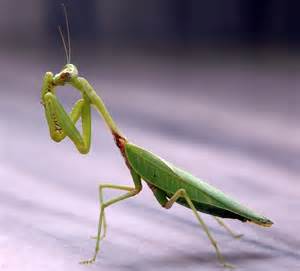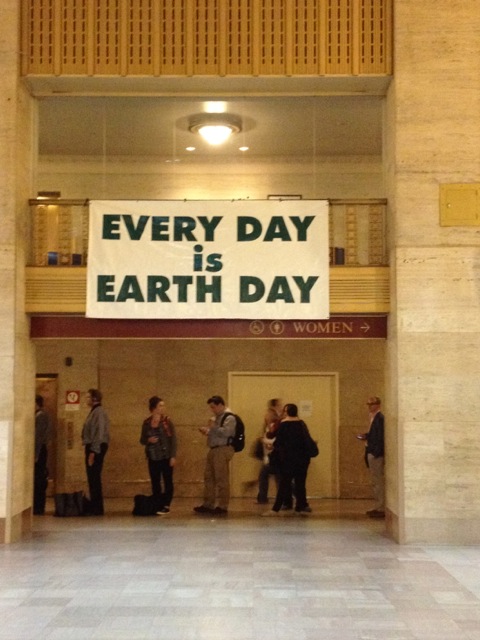 OIL IN WATER
OIL IN WATER
Pam Lazos
Chapter Eighty-Two
Four months later, Gil, Avery, Kori and Hart walked the perimeter of a building inside the Philadelphia Naval Business Center. After careful deliberation, Hart had decided not to use Akanabi’s existing plant, but to build fresh. Hart walked slowly, surveying the area, while the Tirabi children followed him like sheep behind the shepard.
“I’ve got the contractors lined up. We’ll start construction next week. We’ll have to sequester the blue prints. No one gets a full set. Just bits and pieces. Enough to keep them working on their part.”
“But we already have a patent,” Gil said.
“That we do,” Hart said. He winked at Avery who blushed. Avery’s endless hours at the library had paid off several days earlier with the arrival of the official seal of the United States Patent and Trademark Office.
“We have affirmative rights,” Avery said to Gil. “but that doesn’t mean somebody couldn’t steal the idea, or maybe improve on it and get their own patent. Even if they incorporate it wholesale, we’d still have to sue them to get them to stop.”
Hart turned to Kori. “I’ll need Gil to take a little time off from school. He’ll have to be on the floor while we’re in the construction phase just to trouble shoot.”
Kori scowled at Hart, exuding denial.
“I’ll get him a tutor,” Hart said. He walked over and wrapped an arm around her shoulder. “It’ll be alright. I promise.” Kori nodded and relaxed a bit.
“Can we have ice cream?” Gil asked.
Kori checked her watch. “It’s only 11:00 o’clock.”
“I know,” Gil said. “But I’m hungry.”
“Tell you what. Let’s go down to 9 th and Catherine. There’s a little deli called Sarcone’s . They make the best hoagies you ever ate. It’s all in the bread. They got a veggie one – spinach and roasted peppers.” Gil turned up his nose and looked the other way. “You gotta try it. If you don’t like it, we’ll go to Geno’s and get you a cheesesteak.”
“But I want ice cream,” Gil said.
“Ah, but you didn’t let me finish. Afterwards we’ll go to John’s and get the best water ice you ever tasted.”
“Like Rita’s Water Ice?
“Rita? Never heard of her. But I can assure you, Rita don’t know nothin’ about nothin’ when it comes to water ice. I’m tellin’ ya’. This is the stuff.”
“Okay, but I want half kiwi-strawberry, half mango.”
“You got four flavors. Chocolate, cherry, pineapple and lemon. They may have added one in the last twenty years, I don’t know, but if they did, it won’t be kiwi-strawberry,” Hart said.
Gil frowned. “Whatever. Can we go now? I’m starving.”
“Why am I not shocked,” Avery said, following Hart out.
Gil stole a last glance around the deserted floor and ran to catch up.
➣➣➣
Hart started the car and pulled out of the parking lot.
“Estimated time of arrival, sixteen minutes,” Hart said. Avery sat next to him in the front seat, Gil and Kori in the back.
“I don’t think I can wait sixteen minutes,” Gil said. “I’m so hungry, my stomach is soon going to eat the rest of me. I’m also thirsty.” Gil made notes in the blue folder on his lap, his head bowed in concentration.
“Why didn’t anyone remember to bring snacks and libations for this child?” Hart kidded Kori.
Kori rolled her eyes and rummaged around in her purse, coming up with an old, yet edible peppermint which she handed to Gil. Gil tried ripping the paper off, but it had melted on in sections and the job was too tedious. He handed the mint back to Kori who yanked it out of his hand.
“Can’t you do anything yourself?” she asked, picking lint and other sundries previously living in the bottom of her purse off the stale, hard candy. Gil shook his head. When the mint was wrapper-free, she handed it to Gil. He popped it in his mouth and crunched it to bits within seconds, then looked again at his sister.
“That was it. I don’t have anymore,” she said.
Gil went back to his notebook. Several minutes later, he raised his head, capped the pen and closed the folder. “Hey, Hart?” Gil said.
“Yo.”
“Did you ever hear about the Zero Point Field?”
“No, but I’m sure you’re going to fill me in,” Hart said. Gil smiled and looked at Avery before grabbing Kori’s purse.
“Hey, you little brat,” she said, but made no effort to retrieve it. Gil began routing around, looking for more candy.
“The Zero Point Field is a constant backdrop in all physics equations. The theory is well known,” Avery said, “but not in the way Gil is working on it. Because it’s a constant, it used to be something that physicists subtracted out of everything.”
Gil found another peppermint, this one more tattered than the first. He handed the peppermint to Kori and she peeled the plastic off in strips. He grabbed it from her outstretched hand, picked off the last few pieces of lint, and chomped it up as quickly as the first one.
“But for the last thirty or forty years, a few pioneers have been tinkering with the idea that there’s more to the Field than the need to remove it from a few equations,” Avery said. “Some of the brave ones have begun a series of experiments, mostly in isolation. Collectively, their work points to a phenomenal result. It turns out that the Zero Point Field, what used to be thought of as empty space, is this massive, cohesive unit of energy that runs through everything , not only on the planet, but in the entire universe.”
Gil licked the sticky peppermint off his fingers. “Anything can happen in the Field” he said. “That’s why sometimes they call it the Zero Point Field of All Possibility.”
“Sounds like science fiction,” Hart said.
“Yeah,” Gil said. “Did you ever see on Star Trek when they heal somebody without medicine and without surgery? They were tapping into the Field.” Hart laughed out loud and Gil blushed.
“He’s not kidding. The Field will make our ideas of modern medicine obsolete,” Avery said.
“If you get shot or a tiger bites your arm off and you want somebody to reattach it then you’ll still need a doctor,” Gil added.
“Yeah, but not for the stuff like cancer or arthritis or Alzheimer’s,” Avery said. “You won’t need to take drugs.”
“Yeah, because you can just go back in time to the “seed moment” and fix it before it gets to be a problem,” Gil said. He stuck his hand in Kori’s purse and fished around for more candy. She yanked it away.
“Enough,” she said.
“What’s a seed moment?” Hart asked.
“Well, these physicists who are studying the Field say it’s the time of the conception of a disease. Or actually, the exact moment before when all the pathways are coalescing to form what will become the disease.”
“And you’re saying you can go back in time and cure it even before it manifests itself just by accessing this mysterious Field,” Hart asked. Gil nodded.
Hart mulled this information over for a moment before speaking: “What if it wasn’t a disease, but an accident. Could you change it then?”
Avery looked at Gil who shrugged.
“Does it involve more than one person?” Gil asked.
“Yeah,” said Hart.
Gil thumbed through his folder and rubbed his chin just like his father used to do. After a minute he closed the folder. “Too many variables,” Gil said. “You can talk to God, but you can’t have his job.”
Hart’s expression sank as he exited the highway. Gil caught Hart’s eye in the rear view mirror and smiled, forcing Hart to do the same. Hart shrugged.
“Anyway….” Gil handed Kori the blue folder. On the cover, in large type it read: “Plans to Solve the World’s Health and Energy Problems Using the Zero Point Field, ” by Gil Tirabi. At the bottom of the page in smaller type it read: “ I give this five stars.”
Kori read the cover and turned to stare at her brother. “You – are kidding me. You never gave anything five stars.” Kori flipped through the folder. “What? Did you prove the existence of God or something?”
“Something,” Gil agreed. He fidgeted in his seat and made a goofy face, one that belied the intelligence lurking beneath.
Kori dropped the folder on the seat next to Hart who at present was maneuvering deftly around a car double-parked in the driving lane. He cast his eyes down to the folder lying next to him and read the title. He looked at Gil in the rearview mirror.
“Are you serious? Because if this is true, Gil, we better hire some better security, and pronto.”
“Well,” Gil said, “maybe you should start interviewing.”
THE END




 Support the arts. Buy the book.
Support the arts. Buy the book.
